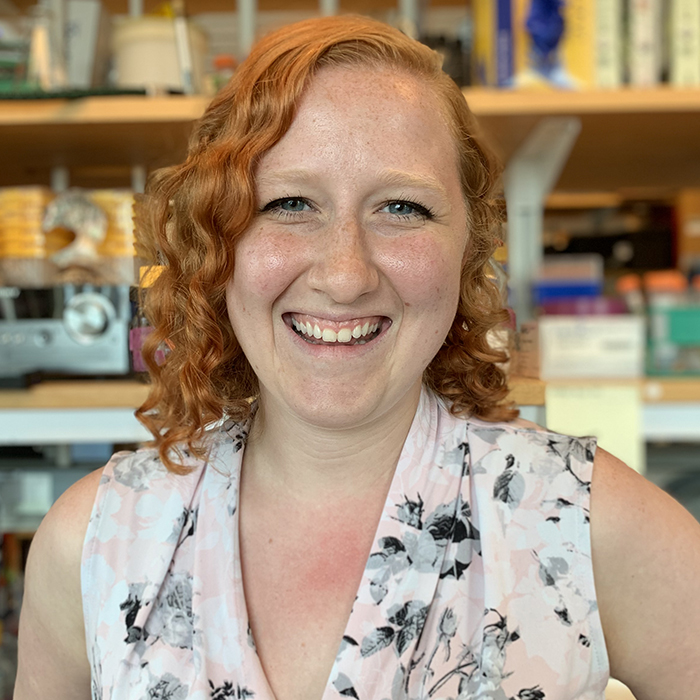HMX Moderator Profile
Rebecca Clements

Rebecca Clements is currently a PhD candidate in the Biological and Biomedical Sciences program at Harvard Medical School. As a future researcher and teacher, she appreciates how her work as an HMX intern has helped to broaden her perspective on the basic science that underlies her research and its applications to the clinic.
What is the focus of your graduate study, and how do HMX courses relate?
I study the biology of the parasite that causes malaria; we use a lot of genetic tools, and the purpose of our research is to identify new targets for anti-malarials. So in my research I do a lot of genetics and drug discovery, which both tie into my work with HMX through the genetics and pharmacology courses.
I’m perhaps a little bit different from a lot of the HMX team because they’re more on the medical side of things, and I’m very much on the basic research side of things. I still find that the material that HMX uses is really useful for people who are studying basic biology as well, because it helps frame our research in a more meaningful way. The work that I do wouldn’t really quite have the same impact without that medical knowledge of the disease and antimalarial development.
One thing I really like about HMX is that throughout the lessons it incorporates a lot of clinical examples. For example, in the pharmacology course, there’s a section on anesthesia, and that’s something I really didn’t get when I was an undergraduate, or when I was in graduate school. It’s really once moderating these courses that I got those examples of how the basic material that we’re learning in the class actually translates and is used in the clinic.
What made you decide to become part of the HMX team?
After I finish graduate school, I’m really interested in education. I’d like to run my own lab, but I want teaching to be a big part of what I do. So HMX was a really great way to see education in this modern landscape. I’ve had a lot of experience in the traditional classroom, whether being a TA or teaching my own lectures, but HMX really gave me an opportunity to see the challenges that come with online courses, and how content and assessments have to change for an online audience. You have people who are professionals who just need to dig into their knowledge a little bit more, and students who have never had a course in this topic before. So HMX helped me to learn not only these modern tools, but also how you can then use these tools to teach a broad range of students.
What has been most interesting to you about the experience of moderating the courses?
I think, coming from the basic research side of things, my mind doesn’t automatically think about clinical questions, so every once in a while when I’m moderating a course, I’ll get a question that’s very specific and targeted where students will have heard a concept in the course, and they think about a practical, real-world example of something they might see if they were to become a doctor. Seeing students automatically frame what they’re learning in that mindset has been really interesting, and I think it’s really helpful for me because eventually, I’m sure I will be teaching in a classroom where there will be a mix of students and some will be pre-med students. I imagine that for some of those people, that is the first thing they think about. When they learn, for example, about a biochemical pathway, they’ll think, ‘how is that relevant to human health?’
What advice do you have for participants in HMX courses?
Don’t be afraid to use the discussion forums to ask questions. Sometimes we’ll have some students who are right off the bat very brave, and ask any questions that they have. But then you notice as the course goes on, some students will comment on other questions and say, ‘oh, I had the same question, I just didn’t know how to ask’.
I notice the people who do ask questions are then able to identify areas that they maybe don’t understand well and then dive deeper. Beyond that, they’re able to expand outside the lines of the lectures and go beyond what we’re teaching and help them understand even further. So don’t be afraid to ask questions; we are there as resources. We’re really what make HMX courses different from [participants] looking up YouTube videos. The fact that you do have this moderator who’s an expert in there and ready to engage with you, is a really unique aspect of this course that you should definitely take advantage of.
Meet other HMX moderators:
Ashwini Joshi
Elliot Akama-Garren
Giulia Notarangelo
Jordan Said
Michael Chang
Jakub Glowala
